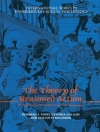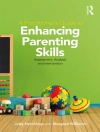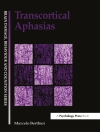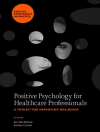Quickly and efficiently create treatment plans for adolescents in a variety of treatment environments
The newly revised sixth edition of the Adolescent Psychotherapy Treatment Planner delivers an essential resource for mental health practitioners seeking to create effective, high-quality treatment plans that satisfy the needs of most third-party payers and state and federal review agencies. This book clarifies, simplifies, and accelerates the treatment planning process for adolescents so you can spend less time on paperwork and more time treating your clients.
This latest edition includes comprehensive and up-to-date revisions on treating the victims and perpetrators of bullying and aggression, gender dysphoria, loneliness, opioid use, and sleep disorders. It includes new evidence-based objectives and interventions, as well as an expanded and updated professional references appendix.
You’ll also find:
* A new appendix presenting location and availability information in an alphabetical index of objective assessment instruments and structured clinical interviews
* A consistent focus throughout the book on evidence-based practices and treatments consistent with practice guideline recommendations
* Ranges of treatment options consistent with the best available research and those reflecting common clinical practices of experienced clinicians
An essential treatment planning handbook for clinicians treating adolescents in a variety of settings, the sixth edition of the Adolescent Psychotherapy Treatment Planner is the key to quickly and efficiently creating individually tailored, evidence-based, and effective treatment plans for adolescent clients.
Mục lục
Practice Planners® Series Preface ix
Acknowledgments xi
About the Companion Website xiii
Introduction 1
Academic Underachievement 16
Adoption 28
Anger Control Problems 39
Anxiety 53
Attention- Deficit/Hyperactivity Disorder (ADHD) 64
Autism Spectrum Disorder 76
Bipolar Disorder 87
Blended Family 100
Bullying/Aggression Perpetrator 111
Bullying/Aggression Victim 123
Conduct Disorder/Delinquency 134
Depression– Unipolar 148
Divorce Reaction 161
Eating Disorder 172
Gender Dysphoria 185
Grief/Loss Unresolved 195
Intellectual Disability 205
Loneliness 216
Low Self- Esteem 227
Medical Condition 238
Negative Peer Influences 250
Obsessive- Compulsive Disorder (OCD) 263
Opioid Use 274
Oppositional Defiant Disorder (ODD) 286
Overweight/Obesity 299
Panic/Agoraphobia 311
Parenting 322
Peer/Sibling Conflict 334
Physical/Emotional Abuse Victim 344
Posttraumatic Stress Disorder (PTSD) 355
Runaway 368
Schizophrenia Spectrum 379
Sexual Abuse Perpetrator 390
Sexual Abuse Victim 402
Sexual Orientation Confusion 413
Sexual Promiscuity 421
Sleep Disturbance 430
Social Anxiety 439
Specific Phobia 450
Substance Use 461
Suicidal Ideation 474
Appendix A: Bibliotherapy Suggestions 487
Appendix B: Clinical Resources for Therapists 516
Appendix C: Recovery Model Objectives and Interventions 546
Appendix D: Alphabetical Index of Sources for Assessment Instruments and Clinical Interview Forms Cited in Interventions 552
Giới thiệu về tác giả
ARTHUR E. JONGSMA, JR., PHD, is Series Editor of the bestselling Practice Planners¯®. He has over five decades experience providing mental health services to inpatient and outpatient clients. He has authored or co-authored over fifty books.
L. MARK PETERSON, ACSW, retired Program Manager for Bethany Christian Services Residential Treatment and Family Counseling programs in Grand Rapids, Michigan.
WILLIAM P. MCINNIS, PSYD, is a private practitioner with Aspen Psychological Services in Grand Rapids, Michigan. He is a co-author of the Adolescent Psychotherapy Homework Planner and the Child Treatment Planner.
TIMOTHY J. BRUCE, PHD, is Professor Emeritus in the Department of Psychiatry and Behavioral Medicine at the University of Illinois College of Medicine.












